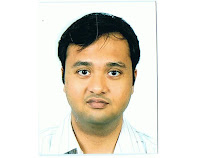Ekalavya - Nirguna v/s Saguna
Ekalavya meditated on a concept of his 'Guru' Drona, learnt his lessons in archery in the Master's absence, and mastered the art. When his 'Guru' desired the thumb of Ekalavya's right hand as a fee,Ekalavya willingly sacrificed it. He demonstrated to the world what an aspirant could achieve in life if he has faith and respect in his master (even in his absence) and pursues his efforts.
While Arjuna had personally mastered archery from Drona, Ekalavya achieved equally impressive skills while meditating on the concept of his 'Guru' without his personal involvement. If he could not accomplish a particular technique, he would think about his 'Guru', present his problem and would wait in meditation till a solution appeared in his mind. He would then proceed further. Ekalavya's guru was without personal attributes, and Arjuna's guru was a person with attributes. However Ekalavya acquired skills matching or exceeding Arjuna's by faith and devotion. This story teaches us that faith opens doors to knowledge and gives answers even to the most difficult problems. It also teaches us the same results can be obtained by meditating on the formless as by devotion to the personal form with attributes.
Those with minds entered into Me, who unitively meditate
on Me, with a fervour pertaining to the Supreme, those
according to Me are the most unitively (attuned)in yoga.
But those who meditate upon the Imperishable, the
Undefineable, the Unmanifested, the All-Pervasive
and the Thought-transcending, the Firmly-established,
the Immobile, the Constant,having restrained all sense-aggregates,
regarding all with equalizing understanding, interested in the
well-being of all creatures, they reach Me too.
The 'Guru' Drona acknowledges that Ekalavya could seriously challenge Arjuna's status as the supreme archer, hence he asks for his right thumb. In this case, the 'Guru' is partial to the student who is devoted to him as a person and not to the student who meditates on a concept of him. The Lord however is not partial like Drona.
The only reason why he advocates the path of personal devotion to Arjuna is because Arjuna is more suited to this path, as proven by his devotion to his Guru Drona. In fact, Arjuna is so attached to the personal form of Drona that he is unable to come to terms with the fact that Drona is his worst enemy, and that Drona needs to be killed in order for justice to prevail. For a person with a different disposition, who attaches less significance to personal attributes, a different path would be more suitable.
Further, Krishna was personally present along with Arjuna throughout the war. Hence it made more sense for Arjuna to practice devotion to the personal form of Krishna rather than an abstract and formless concept, because guidance from the personal form would be instantaneous. Meditation on the formless would not be possible during battle, hence he would have to surrender to the personal form of Krishna with unwavering faith in order to perform his duty during the war.


0 Comments:
Post a Comment
Subscribe to Post Comments [Atom]
<< Home